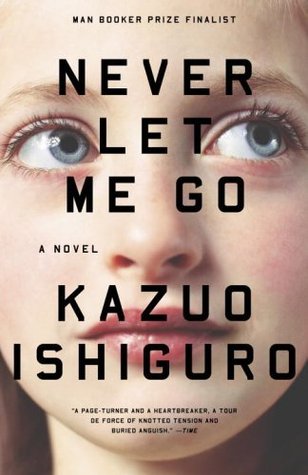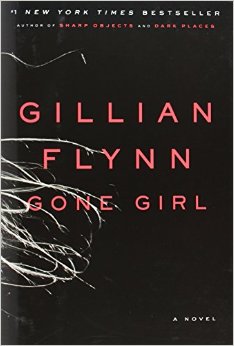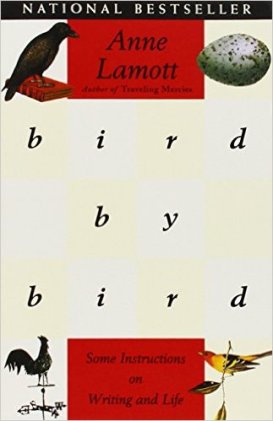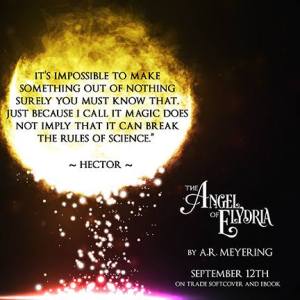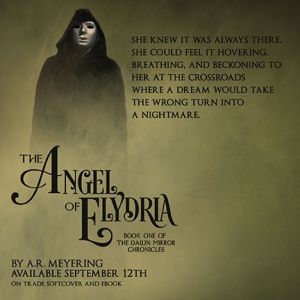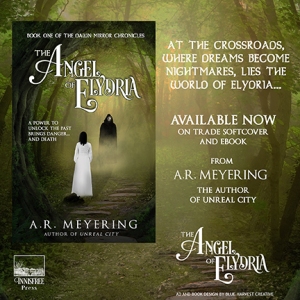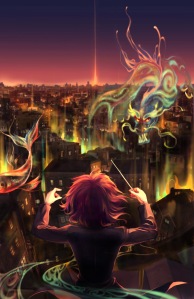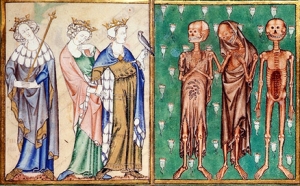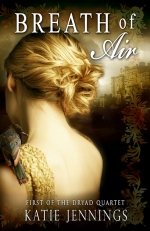I read 25 books this year, and I enjoyed most them! During the year, I kept thinking of writing reviews for each, but then I decided to start a new tradition for New Year’s Eve. I’ll write reviews/responses for each of the books in addition to ranking them in the order of which one I liked the most, not the ones I think are necessarily the best written. Because some of these are re-reads, like Harry Potter, I’ll rank them in the list in terms of revisiting enjoyment. I’ll try to keep each of them brief! You can click on any of the covers to buy them on Amazon!
Throne of the Crescent Moon by Saladin Ahmed
What it’s about: The story of an aging ghoul hunter and his young apprentice set in a Middle Eastern inspired fantasy world that is as dark as it is wonderful.
What I thought: Rarely do I have as much fun with a book as I did with this one. It has it all – a well-developed world, a springy plot, danger and intrigue, engaging and lovable yet flawed character, and a fresh setting. It was just…just FUN. Fun without being cheap or tawdry, either. There is weight in its plot and themes, and I would go so far as to classify this as dark fantasy, rather than high or classic fantasy. It made me feel like I used to feel as a child reading books. Hungry to know what happened next, genuinely concerned for the characters, and purely entertained. It may not be the best written book on this list, and all the tropes/plot twist can be a little predictable, but I enjoyed this book the most out of anything I read this year. I highly recommend this to all fantasy lovers who would like a refreshing look at a favorite genre.
His Dark Materials Trilogy by Philip Pullman
What it’s about: A young girl who lives in an alternate world to our own, where souls live outside human bodies as animal spirits, discovers she has an ability to read a device that can measure the truth. It expands from these journeys to explore the concepts of multiple dimensions, coming into adulthood, a thoughtful critique of the organization of religion, and an exploration of the meaning of consciousness.
What I thought: I only put this below Throne of the Crescent Moon because there are, admittedly, very slow sections of this series. However, this has captured the title of my favorite series of all time – yes, even above Harry Potter. This is brilliant literature. This series is impactful with complicated yet relatable characters. It tackles topics that other books of this type would not dare to, and it does so in a way that is eloquent and easy to digest. These books blur the lines between science fiction and fantasy, and the author has done significant work to back his concepts up with in-depth explanations. It can also be enjoyed thoroughly by adults and younger readers. There are multiple worlds to explore, all of them finely developed. Though there is plenty of action, the tone gets almost gothic at times, which adds an element of spine-chilling darkness to the books. Overall, I would consider this trilogy a masterpiece of fiction.
Never Let Me Go by Kazuo Ishiguro
What it’s about: A story that follows the life of a girl called Kathy who attends a boarding school for children who were born for a single dark and heartbreaking purpose.
What I thought: This book. This book. READ THIS BOOK. This is my pick for best book of the year. It is a life-changer. I hesitate to share more about the plot because the twist is so poignant and bone-rattling when you come to it, but know that once you get a clearer picture of the purpose of the main characters’ lives, you will be spellbound with horror and fascination. Kazuo Ishiguro is, in my opinion, a true master of writing. One of the marks of really, truly good writing, which I often see, is the ability to take simple events and make them deeply profound. Though the plot often directly focuses on more mundane effects, Ishiguro will keep you hanging onto every word.
Never Let Me Go is hypnotic and heartbreaking, and so perfectly honest. It tackles some HUGE themes, but does so in a way that is so exquisitely subtle and realistic. These characters breathe. In style and substance, I don’t think it gets better than this. It has all the weight of a book that exists to teach an important lesson without any of the lecturing tone. The book is an utterly heart-rending, gorgeous, and weighty look at oppression in society, presented in a way that shirks vulgarity and embraces the human spirit at its core.
American Gods by Neil Gaiman
What it’s about: A man recently released from prison loses his wife in a very peculiar circumstance. He is approached by an exceedingly odd stranger and given a job opportunity, which lands him in the middle of a fantastical road trip, as well as a war between the gods of the old world and the new. This is a rich and striking look at the American spirit, the survival and meaning of folklore, and the changing of society, all wrapped up in a comedic, dark, compelling package.
What I thought: This book was glorious. I’m not even confident what genre to classify it as. It could easily be shelved as comedy, horror, adventure, or thriller. It’s a modern day fairytale, it’s a gritty and profound literary piece, it’s full of hilarious and clever references to folklore, mythology, and religion. It’s one of those books that seem endless and far too short, all at once. It’s beautifully yet simply written, with hard-hitting moments. Few authors know how to turn a phrase or spin a yarn quite like Neil Gaiman, and I would say this novel is a shining example of his best work. A true must-read!
The Chimes by Charles Dickens
What it’s about: After coming to believe that all people are born bad, an old man experiences a series of fantastical and terrifying visions of his life to come by the spirits of the church bells near his home.
What I thought: Let me first say that I have a love-hate relationship with Dickens, having studied him at length for my major and specialization. This novella is easy to critique, and I don’t think its genius lies so much in its plot, as in the style and how its message is still so completely relevant nearly 200 years later. The plot is…pretty much exactly the same as the Christmas Carol, as it is part of the series of books Dickens did for this purpose, along with Cricket on the Hearth. It is exactly what you’d expect from Dickens: heavy-handed, didactic, stern, and complete with the angelic female characters modeled off his sister – in law, and the caricatures of the upper class. However, also like his other works, it is full of wit and is undeniably powerful.
What really made me give this book special attention is how scarily relevant it still is to today’s society. The situations of the rich and entitled upper class putting the blame on the poor and vowing to “put ‘em down” and teach them their rightful place…it’s simply chilling to read. It amazes me how this work, intended to improve the deplorable conditions of the lower class in Victorian England and expose the corruption and callousness of the rich, still perfectly applies to today. It amazes me how we, as a society, can look back on history and agree that Dickens was a hero and that the lower class of that day was treated monstrously, and not realize that we’re making the exact same mistakes today. I have heard the language used by the upper class characters in this book repeated almost at verbatim by people today. To me, that’s what makes this book so important.
The Wind in the Willows by Kenneth Grahame
What it’s about: A group of anthropomorphic animals have a series of adventures, great and small, in idyllic Edwardian England.
What I thought: This is my favorite book of all time. It’s a treasured classic, and for good reason. It is a rich celebration of life with timeless characters such as Mr. Toad. It is an ode to friendship, nature, loyalty, the simple pleasures, and compassion. Re-reading it was a comfort and a delight as it always is. Though it is simple and indolent, it will always be dear to me.
Gone Girl by Gillian Flynn
What it’s about: A man’s wife completely disappears under the strangest of circumstances. Soon, due to her fame and beauty, public eye turns on him and suspects him of her murder. This thriller unwinds to show there is so much more than meets the eye in this tale of two seriously deranged people and their quest to both destroy and possess each other.
What I thought: I had a lot of fun with this one. It is a powerhouse of a read that blurs the line between seedy thrillers and thought-provoking literature. It offers as much food for thought as it does electric entertainment. It is twisting, unpredictable, bold storytelling. The language is honest, entertaining, and satisfying—the characters remain believable despite their intricate absurdity. Gone Girl is a portrait of modern misogyny, of postmodern disillusionment, of age-old manipulation. It is lengthy, overdrawn, but in the way that makes you glad you ingested every last word.
Harry Potter and the Sorcerer’s Stone by J. K Rowling
What it’s about: Just in case you didn’t know…the story of a young boy who realizes he is a wizard and attends a school where he is instructed on the magical arts.
What I thought: What can I say about Harry Potter that already hasn’t been said a thousand times over? What I took away from this re-reading of the book is that it was so much more enjoyable than I remembered even. Love it or hate it, this bewitching blend of airy, mysterious, and compelling storytelling is undeniably compelling.
Fahrenheit 451 by Ray Bradbury
What it’s about: A man whose job it is to burn books meets an eccentric young girl who changes his outlook on the vapid dystopian society he lives in.
What I thought: There was a lot of hype surrounding this book and I’d been hearing its praises sung since I was young. I finally got around to reading it and it was a lot different than I expected it to be. The style is a double-edged sword in my opinion: it is fresh, colorful, violent, and intense, however, the abstract tone can also be pretentious and obtuse. When you settle in to Bradbury’s peculiar prose, there is a lot that you can sink your teeth into here. Fahrenheit 451 is a short read, but its hallucinatory and disturbing qualities make it a weighty one. Definitely worth your time.
Storm Front by Jim Butcher
What it’s about: A wizard living and working openly in Chicago gets wrapped up in a mystery of supernatural crime.
What I thought: A delightful and naughty piece of genre fiction that is highly enjoyable. It’s got a gripping and entertaining plot that moves along at a great pace. There is a nice mixture of gritty crime drama, fantasy and magic, and sarcastic humor in this one. The adventure grabs you and pulls you along, and there are plenty of moments that will make you laugh out loud. Harry Dresden is a really great character—it’s very hard not to love him, even though he can be frustrating. Overall, this is a truly entertaining start to a series I will definitely be reading more of.
Lolita by Vladimir Nabokov
What it’s about: A disturbed man by the name of Humbert Humbert relays his story of how his obsession with young girls led him to a long affair with a 12-year-old child, Dolores Haze, whom he calls Lolita. They embark on a disturbing journey across the United States, which leads to their further degradation and eventually to violence.
What I thought: There is so much to say about this book that I don’t think I can do it justice with such a short statement. Upon reading it, it is easy to see why it is a classic. Overall, this is a fascinating read that unfurls a thorough examination of a very dark mind. The sheer complexity and depth of the character development is astonishing, all in itself. The subject matter is both revolting and highly intriguing, and the command that Nabokov has over language and storytelling frequently floored me throughout reading. It is meandering and aimless in parts, but is the sort of book that imprints itself upon you permanently.
The Road by Cormac McCarthy
What it’s about: A boy and his father roam the wastes of a post-apocalyptic America in search of safety and survival.
What I thought: This book is very grim, but very, very good. It is haunting, terrifying, thrilling, and horrifying. McCarthy’s style is blunt and unflinching, even jarring at times. The theme explores the inherent goodness or evil of mankind, and asks the reader whether there is a “promise land” waiting for us at all, so to speak. Though short and simple, The Road is as bleak as it is powerful.
Modern Romance by Aziz Ansari
What it’s about: Comedian Aziz Ansari takes a sociological and entertaining examination at how romance has evolved to fit our current day and age.
What I thought: Modern Romance was insightful, interesting, and contained a lot of the humor and wit that I love Aziz Ansari for. I think this is an excellent book for people of my generation to turn to when you feel frustrated that you haven’t found true love just yet, or those in a long-term commitment. It does a fairly good job of backing up the anecdotal with facts and figures, too, giving it more weight than if it was mere conjecture on the author’s part.
The Stand by Stephen King
What it’s about: In this sprawling horror epic, a massive, man-made plague decimates 99% of the world’s population. The survivors band together to recreate society, while also struggling against each other in a war of good vs. evil, which turns out to be rooted in Christian themes.
What I thought: The Stand is….huge. It’s a massive book, and with that comes a litany of topics to address. It’s difficult to summarize how I felt about a story that’s over 500,000 words long (about the length of five books) but I will try. The Stand is worth it. It’s undeniably laborious and repetitive in sections, but it’s worth it. However, your patience must be prepared. Anyone who knows me knows that I adore Stephen King, and I can say that The Stand does contain some of his best writing. It is truly an epic journey, and it showcases the best of what makes King’s writing so compelling, including the horrifying and the heartfelt. The story follows the lives and stories of a great many interesting and turbulent characters, and it definitely ends with a bang.
Peter Pan by J. M. Barrie
What it’s about: A children’s classic about three children who are spirited away to Neverland by the boy who wouldn’t grow up.
What I thought: As with Fahrenheit 451, this book was not what I expected. I hadn’t read this book as a child, so coming to it as an adult with the Disney filter over my eyes, I was prepared for something purely lighthearted. This book is not at all what I’d describe as light hearted. It’s downright wicked in certain parts, and there’s a great deal of sadness and poignancy. It’s certainly a beautiful and playful story, but there’s this weird sense of melancholy, violence, and unease that pervades the entire thing. I think this is actually quite appropriate for the topics it addresses, and it completely avoids being cloying about the nature of childhood, which I quite appreciated. Unavoidable for its time, it is extremely offensive in certain regards, too. However, it is an enjoyable read with a strong narrator voice.
Bird by Bird by Anne Lamott
What it’s about: Author Anne Lamott shares the story of her life and her journey as a writer, as well as gives some deep, honest advice to aspiring authors.
What I thought: While I was reading Bird by Bird, I didn’t really like it. The tone came off as self-important and pretentious to me as I was experiencing it, which is off-putting to me, especially when the topic is writing. However, after I finished it, it sort of fermented inside my brain to become a something really unforgettable and beautiful. While most of the advice that the author gives are kind of common sense or uninspired, there are a few sections that are so uplifting and perfectly said that it makes it worth it. She doesn’t fall back on the “believe in yourself!” tone that you might find in a self-help book, but gives an honest and accurate account on what it’s actually like to be a writer, including the darker side of things such as depression, jealousy, and substance abuse. I would say this, to me, this book was like a vaccination: unpleasant to receive, but it will forever protect me and encourage me to keep on living and writing.
Embers at Galdrilene by A. D. Trosper
What it’s about: A group of mages flee from a society which treats them as dangerous. They discover they are spiritually bound to a set of unhatched dragon eggs, and form a bond deep with the dragons. They take their places as dragon riders and prepare to end the reign of tyranny that began in a war 1,000 years ago.
What I thought: This is a high fantasy book about dragons and magic. I think the deep strength of this book is the characters and their relationships with their dragons. That is a very satisfying part of the story, and though this concept has been done in other books such as Eragon or the Pern novels, I think I liked how it was executed in this book more than any other. The affection and personality of the dragons sold it, for me. While Embers is a little unpolished and the story could benefit from a faster pace and less irrelevant details, this is a solid, very enjoyable fantasy novel that will appeal to anyone who loves dragons.
Glamour in Glass by Mary Robinette Kowal
What it’s about: The sequel to Shades of Milk and Honey, the story is set in the late regency period and follows Jane and her husband, both of whom are accomplished glamourists—a person who is capable of using a magic to create intricate illusions.
What I thought: This book delves deeper into the history and technical aspects of the trait that makes this series of books so interesting. The protagonist and her husband travel abroad in the alternate version of Europe in order to study their craft. It details their journey to make a breakthrough in their field, as well as their relationship together. As with the first novel, the ending and middle really packs a punch. There was even a dark and interesting twist at the very end which was handled very delicately and emotionally, in my opinion. This is a satisfying read which improves greatly from the first book in the series.
How to Win Friends and Influence People by Dale Carnegie
What it’s about: The enduring classic gives tips on how to be a better communicator and friend to others, while also explaining the benefits of such a decision.
What I thought: This one is another re-read for me. There are things in this book which can truly change your outlook on life and help you to improve as a person, so I heartily recommend it in that regard. However, I just can’t fully shake the discomfort of how manipulative it comes off as, at times.
Shades of Milk and Honey by Mary Robinette Kowal
What it’s about: Set in the Regency period in an alternate world to our own where people can take hold of glamour, an illusory magic used mainly for artful purposes, Shades of Milk and Honey follows the story of two sisters and their search for love, bearing striking resemblance to the style of Jane Austen.
What I thought: As a lover of art, history, and fantasy, the concept for this novel snared me right away. If you read and like Jane Austen, then there is a strong chance you’ll enjoy this novel. The beginning of the novel is rough, plodding, and even a little frustrating as we see the characters make the same mistakes, misunderstandings, or unpleasant behaviors over and over again, but the book really picks up to have a great middle and ending. Once I got to the middle, I consumed the rest of the book in the space of a few hours, and the romantic payoff is very satisfying! The male lead is also a dreamy yet grumpy, “Mr. Darcy” artist type—always a plus.
Water for Elephants by Sarah Gruen
What it’s about: After losing his parents, a young veterinarian leaves his life and joins the circus. Set during the age of prohibition, he starts to uncover the dark underbelly of the circus, as well as form a bond with the beautiful woman who is the star of the horse show.
What I thought: I can’t really make up my mind about this book. There are things I loved about it, and things that frustrated me. The main character is very bland and can be so stagnant it makes you want to throw the book at the wall. There’s a lot of needles details and even glibness, too. However, there is an intense emotional story that deals with some hard truths, and has a great respect for animals. Overall, I’m glad I read it, and it is a good book, but it was in severe want of a tighter, more engaging plot.
Miss Peregrine’s Home for Peculiar Children by Ransom Riggs
What it’s about: After his grandfather’s traumatic death, a teenage boy from Florida decides to investigate the outlandish tales about a home for strange children with extraordinary gifts that his grandfather told him about. He travels to Wales, only to find out his grandfather spoke the truth after all.
What I thought: I wanted to like this book, but I really didn’t. While the concept is all right, the style is so unbearably juvenile, cheap, and unpleasant that it made it such a struggle to get through. The main character is your standard, run of the mill basic straight, white, male protagonist. However, he is not only exceedingly boring, but also whiney and obnoxious! It’s one of those YA books that’s trying to relate to young people by framing parents or adults of any kind as bumbling buffoons, or raging strict tyrants, who just don’t get teenagers, ugh! I suppose if you were a teenager this might be appealing, but it just made me want to slap this kid silly. The fantastical concepts of the books have a little going for them, but they seem very empty and underdeveloped, and raise a lot of questions (read: plotholes). The romance plot was forced and gag-worthy, kind of a reverse Twilight, except that the creepy, 80-years-of-age-yet-child-bodied female half of the relationship was ALSO in love with the protagonist’s grandfather. The lack of realistic personalities or believable events was the kicker. Skip!
Dragonflight by Anne McCaffrey
What it’s about: A young girl turns out to be the last hope of the dragonriders of Pern to stop a calamity known as threads from destroying the world and revitalizing the dragons of the land.
What I thought: This was one of the biggest disappointments I’ve ever read. I had been wanting to read this for a long time, and I finally did. I have a long list of problems with this book, but the main two are this: it’s insanely boring and the characters are hateful. You thought you’d be going on high-flying adventures full of danger and excitement? WRONG. You will be subjected to pages upon pages of the driest, most convoluted political nonsense you’ve ever imagined. It has all the excess of Tolkien’s world-building wanderings with absolutely none of the intrigue. The world is abstract, cheerless, and nondescript. The plot was all about saving the world, but this world was utterly boring and barren. Thrill, as hours of unnecessarily complicated inter-clan politics are drilled into your numbed mind! In addition to this, the characters have almost no likeable traits. The female lead, Lessa, is a bratty, reckless, irritating little snot who succeeds solely due to the author wanting her to. She’s special because…well, she is and she’s the only one who can save the world! Her male counterpart is uncouth, domineering, condescending, insulting, aggressive, jealous, and cold. WHY AM I SUPPOSED TO LIKE HIM?? Yet, we are subjected to watch these two fall into an agonizing slow-paced, charmless, and borderline rapey (the humans are forced to “mate” when the dragons do) romance. Did I mention this romance starts when the man is grown and the girl is a mere 10 years old? I hate this book!
Most Impactful Excerpt – American Gods
As a reader, you will come across a section, every now and then, that stays with you for the rest of your days. Something that changes the way you look at the world or that so perfectly puts the truth into words that it will forever be the lens through which you see that concept. For me, one of these passages was from chapter 11 in Neil Gaiman’s American Gods, in the section “Coming to America.” I’ve typed out the introduction here. The rest of the chapter goes on to describe a heartbreaking and very difficult to read account of a girl and her twin brother sold into the African slave trade. It is agonizing, but it is important.
“There was a girl, and her uncle sold her……There are accounts that, if we open our hearts to them, will cut us too deeply. Look—here is a man, good by his own lights and the lights of his friends: he is faithful and true to his wife, he adores and lavishes attention on his little children, he cares about his country, he does his job punctiliously, as best he can. So, efficiently and good-naturedly, he exterminates Jews: he appreciates the music that plays in the background to pacify them; he advises the Jews not to forget their identification numbers as they go into the showers—many people, he tells them, forget their numbers, and take the wrong clothes when they come of the showers. This calms the Jews. There will be life, they assure themselves, after the showers. Our man supervises the detail taking the bodies to the ovens, and if there is anything he feels bad about, it is that he still allows the gassing of the vermin to affect him. Were he truly a good man, he knows, he would feel nothing but joy as the earth is cleansed of its pests.
There was a girl, and her uncle sold her. Put it like that and it seems simple.
No man, proclaimed Donne, is an Island, and he was wrong. If we were not islands, we would be lost, downed in each other’s tragedies. We are insulated (a words that means, literally, remember, made into an island) from the tragedy of others, by our island nature, and by the repetitive shape and form of the stories. The shape does not change: there was a human being who was born, lived, and then, by some means or another, died. There. You may fill in the details from your own experience. As unoriginal as any other tale, as unique as any other life. Lives are snowflakes—forming patterns we have seen before, as like one another as peas in a pod (and have you ever looked at peas in a pod? I mean, really looked at them? There’s not a chance you’d mistake one of another, after a minute’s close inspection) but still unique.
Without individuals, we see only numbers: a thousand dead, a hundred thousand dead, “casualties may rise to a million.” With individual stories, the statistics become people—but even that is a like, for the people continue to suffer in numbers that themselves are numbing and meaningless. Look, see the child’s swollen, swollen belly, and the flies that crawl at the corners of his eyes, his skeletal limbs: will it make it easier for you to know his name, his age, his dreams, his fears? To see him from the inside? And if it does, are we not doing a disservice to his sister, who lies in the searing dust beside him, a distorted, distended caricature of a human child? And there, if we feel for them, are they now more important to us than a thousand other children touched by the same famine, a thousand other young lives that will soon be food for flies’ own myriad squirming children?
We draw our lines around these moments of pain, and remain upon our islands, and they cannot hurt us. They are covered with a smooth, safe, nacreous layer, to let them slip, pearlike, from our souls without real pain.
Fiction allows us to slide into these other heads, these other places, and look out through other eyes. And then in the tale we stop before we die, or we die vicariously and unharmed, and in the world beyond the tale we turn the page or close the book, and we resume our lives.
A life that is, like any other, unlike any other.
And the simple truth is this: There was a girl and her uncle sold her.”


